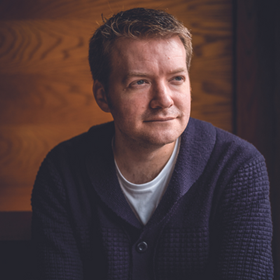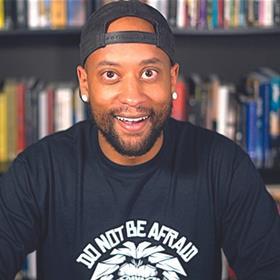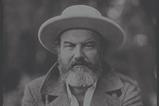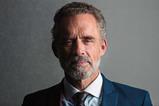Many younger people are put off by organised religion. Justin Brierley speaks to two social media influencers, Mikhaila Peterson and Jon McCray, about their conversion stories and how Christians can better reach millennials and Gen Z
In October 2021, Mikhaila Peterson posted a YouTube video in which she revealed that she had recently converted to Christianity. This was significant for a few reasons. Firstly, because becoming a Christian is good news whoever you are.
Secondly, because Peterson is an influencer with a large online audience: more than 750,000 people subscribe to her YouTube channel and hundreds of thousands more follow her on social media.
Thirdly, because she is the daughter of Jordan Peterson, a highly influential – and sometimes controversial – psychologist and public thinker whose own spiritual journey has been closely followed by many atheists and Christians alike.
Mikhaila has arguably inherited much of her audience from her well-known father, but has become increasingly well known in her own right in recent years, drawing a large audience of Gen Z (those born 1997-2012) and Millennials (1980-1996).

Justin Brierley is theology and apologetics editor for Premier. He is the author of Unbelievable? Why after ten years of talking with atheists I’m still a Christian (SPCK). He hosts ‘The Big Conversation’, produced in partnership with the John Templeton Foundation.

Mikhaila Peterson is a lifestyle and diet blogger, with a wide following on her YouTube channel and podcast, where she hosts a variety of thinkers and experts. She is the daughter of renowned psychologist Jordan Peterson.

Jon McCray is a Christian who runs the popular YouTube channel, Whaddo You Meme?, engaging with Internet atheism and popular culture.
Alongside dispensing nutrition and lifestyle advice (she advocates the controversial meat-only ‘Lion Diet’), her podcast and video channel promote the same conservative-leaning, anti-woke perspectives that made her father famous.
The Peterson family’s growing prominence came in the wake of a tumultuous few years. Jordan Peterson first rose to fame in 2018 following the publication of his bestselling book 12 Rules For Life: An antidote to chaos (Penguin Books). But shortly after, Mikhaila’s mother, Tammy, received a shock terminal cancer diagnosis, followed by an equally unexpected recovery.
The pressure of a gruelling global book tour alongside his wife’s illness led to Jordan unwittingly developing an addiction to anti-anxiety medication. Mikhaila nursed her father back to health over 18 months while, at the same time, her own marriage was breaking down.
PEOPLE NEED MEANING AND PURPOSE, SO THEY’RE GOING TO FIND IT SOMEWHERE
Yet throughout all of this difficulty, a thread of divine grace seems to have been at work. Jordan Peterson has become a firm advocate of the Judeo-Christian tradition, admitting that he finds himself emotionally and intellectually drawn towards the person of Christ.
While he has yet to make a formal confession of faith, God seems to have been working on those around him too. Tammy attributes her miraculous recovery to prayer, and is now a practising Catholic, while Mikhaila found her own prayers answered in the midst of a messy divorce, thanks to the encouragement of Christian friend Jordan Fuller. They married earlier this year.
Mikhaila is open about her own faith journey but insists she’s a work in progress who doesn’t want to be hailed as a ‘Christian influencer’.
Mikhaila was joined on Premier Unbelievable?’s ‘The Big Conversation’ by another YouTube personality, Jon McCray. His popular channel ‘Whaddo You Meme?’ responds to atheist objections and pop culture, while critiquing Christian celebrity culture.
An African-American who converted in his early 20s, Jon has been on the Christian journey longer than Mikhaila, and affirmed her desire to avoid being placed on a pedestal; he has catalogued the falls of too many Christian celebrities in recent years.
They joined me to discuss the state of faith among Millennials and Gen Z, and how the most non-religious of generations may yet be drawn towards Christ. Despite living in a media-saturated and sceptical age, both Jon and Mikhaila believe that a deep spiritual thirst exists among their peers. When the conditions are right – as they have conspired to be for Mikhaila and her family in recent years – God can still move in remarkable ways.
Justin Brierley (JB): Mikhaila, you’ve recently been on a journey towards God. What happened?
Mikhaila Peterson (MP): Given who my dad is, I grew up knowing biblical stories, but more from a psychological perspective. We never read them as if they had actually happened. I identified as an agnostic until August 2021. I was completely open to it, understanding that religion has value, but I didn’t have a faith of my own.
There were a number of things that opened my mind to God. I took a lot of psychedelics, and I do think they opened my mind to the possibility that there was something that I couldn’t see. Then my mum got a really rare cancer and she almost died. The death rate was 100 per cent. The doctors said: “You have eight months, starting now.” She was only 57, and I felt: That’s not fair at all. It tore my family apart, because it was so sudden.
She had surgery, but nothing was working. However, at some point, through that experience, she found God. A lady started visiting her in the hospital and they were praying together. My mum’s demeanour changed – she let go of the control she was trying to have over the cancer. She now identifies as a Catholic.
This is when things got weird, in a way that I couldn’t logically understand. In July, she was in the hospital – she wasn’t eating, she was being fed through a tube, it was bad – and she said: “I’ll be better by our [wedding] anniversary.” And she recovered. Nobody understood why. The doctors didn’t understand why. But she said: “God.” And I thought: I don’t think I can logic my way out of this experience!
Most people are more concerned with what Kim Kardashian ate for lunch than what William Lane Craig says about the Fine-Tuning Argument
We had two horrifying years after that with my dad [also] being in and out of hospitals. Every single day was so awful that I couldn’t believe it was happening. I was in the middle of a divorce, and there were many parts of my life that were just not working well. I wasn’t depressed, but I was crying daily, because life was really hard.
I met my [now] husband in Austin, [Texas]. He’s been a Christian his entire life and said: “You need God.” I said: “Yes, that would be fantastic, but how do I get that?” He said: “Go home and pray. Just ask God to reveal himself to you.” So I prayed: “If you’re out there, please show yourself.”
I know other people’s experiences aren’t this obvious, but for me, there were four parts of my life heading in a bad direction, and they all turned in a better direction after I prayed. My dad called me and said: “I’m feeling better.” (He’d gone back on a diet for autoimmune disorders and it had started to finally help.) Then negotiating with my ex-husband went in a more positive direction. There were also two major work things.
Things had been bad every day for years, but I woke up feeling calm and kind of lifted, which I think was the Holy Spirit. I felt a calm that I hadn’t felt before and then aspects of my life improved. Things have been up and down since then, but I’ve always felt comforted in a way I hadn’t before.
JB: According to Pew Research, 49 per cent of Millennials and Gen Z in the US now identify as non-religious. What do you think is behind this trend?
MP: My personal experience was that I was turned off by bumper stickers that declared: “If you don’t have Jesus, then it’s hell.” Whether or not that’s true, that’s not how you get other people to understand what you believe. The way that many Christians spoke sounded cultish, and I didn’t understand it at all. It sounded like something they’d been rehearsing forever but left me asking: “What does it mean? What on earth are you talking about?”
JB: Jon, what has been your experience of Millennials and faith?
Jon McCray (JM): There was a study done by [think tank] Barna in May 2021 that showed 89 per cent of Millennials hold to syncretism, which is a mix of different worldviews.
Millennials are typically starting from an absence of a worldview, choosing which parts are the most useful, and then adding that to their worldview. This is why the term ‘spiritual but not religious’ makes sense, because it’s starting from personal identity and adding on to that.
JB: Are people becoming less religious, or simply placing their faith in something else?
MP: I don’t think human beings work very well if they’re not focused on something and, at the moment, a lot of that is politics. I think for me, I was probably replacing God with science. So people are definitely redirecting their attention and worshipping false idols.
JM: I think people need meaning and purpose, so they’re going to find it somewhere. Typically for Millennials and Gen Z, they’re looking for it in personal identity; the freedom of self-expression. Institutions stifle that. If you say you’re a Christian, a lot of times they see it as this rigid system that insists on boundaries. Because of that, people are a lot more hesitant to identify as Christian, even if they hold to a lot of core Christian beliefs.
That’s consistent with the data as well. Even people identifying as atheists often say they believe in God and aspects of the Bible. So what’s going on? I think it’s just a difference in terms and how things are set up.
I was turned off by bumper stickers that declared: ‘If you don’t have Jesus, then it’s hell.’
JB: Mikhaila, has your newfound faith affected your father, Jordan Peterson, in any way?
MP: The change he saw in my mum really impacted him, because her personality changed quite a bit. At first we thought she’d joined a cult. But then we realised she seemed a lot happier and was quite a bit nicer. And then we thought: Oh, OK, you’re a practising Catholic – that makes a little bit more sense.
I think it’s hard for him to wrap his mind around the concept of God, because part of it is unexplainable, and I don’t think he likes that. So it has impacted him, hopefully positively, and I think it has made him more likely to believe.
JB: You mentioned using psychedelics. What about the dangers and deceptions they might bring?
MP: I’ve had this conversation a number of times with my husband, as you can imagine. I don’t think they’re evil. I think they opened my mind to the possibility of God. Plus, why are they on earth? Wouldn’t you argue that maybe God put them there? Or were they put there by the devil? I don’t know!
I think that they can be unbelievably beneficial for people but can probably be used as a replacement for God, which is not a good idea at all. People who are really looking for a sense of meaning [may] gravitate towards psychedelics to fill that void, and people don’t have good experiences like that. You have to be really careful. I found them really beneficial, but that was before I had any type of faith. I don’t know if I would need them now.
JB: What makes you believe Christianity is true?
MP: I don’t have an in-depth answer, because it has been so recent. I’ve read the Bible and I believe it. I know what kind of people Christians are generally; I know what kind of families they have. And the difference between how their families are, compared to a secular family, is striking – generally happier, calmer and more forgiving. That difference is enough.
JB: Jon, are intellectual arguments for faith helpful for young people? Do we need to engage in a different way?
JM: I think most people are more concerned with what Kim Kardashian ate for lunch than what William Lane Craig says about the Fine-Tuning Argument. I wish it wasn’t that way, but it is.
I think we take the model of Jesus, because he always met people where they were. He wasn’t starting from some high-end abstract theory that wouldn’t resonate with his audience. Compare how he talked with the Pharisees with how he talked with the woman at the well – he’s always meeting people where they are and adjusting [his teaching] for that person.
That’s what I try to do on my channel. I’m not really that into pop culture, to be honest. But I keep up with this stuff, because it’s a means for me to be able to communicate the gospel message in a way people can understand and appreciate.
JB: There’s been a recent uptick in celebrities – Chris Pratt, Justin Bieber, Kanye West – being open about their faith. Where is that coming from?
JM: I think it has to do with social media, which allows people to be accepted for their personal identity and expression. It’s easier for religious people – and non-religious people – to share their personal experience.
It’s noticeable that a lot of these celebrities are not sharing an institution; they’re sharing their personal experiences. They’re not starting with an argument for God’s existence; they’re starting with their personal faith experience.
MP: I think it’s brave, especially somebody like Justin Bieber, who got a lot of negative media attention for being famous as a teenager. Maybe that’s helped increase people’s likelihood to take it more seriously, or made it trendier, which I think is a good thing. You don’t want to be the old, stuffy Christian person – it’s a lot cooler if Justin Bieber’s a Christian.
JB: How can Christians be better at reaching their contemporaries, if it’s not through some great logical argument?
MP: I think maybe less condescension from people who’ve had faith for a long time…Less “you’re thinking about this wrong”, or “that’s not what it says in the Bible”. Maybe if people were a little bit nicer and more understanding of people who didn’t grow up with Christianity, then it would spread.
JM: That’s one of the things I touch on a lot on my channel. The gospel message is that we’re not saved because we’re more moral or more spiritual than other people; we’re saved because we trust in Christ for our salvation.
Our natural tendency is to always look down on other people. But I think the gospel is a great neutraliser, because we’re all sinners and we all have the same problem. None of us solves it by being better than anybody else, we only solve it by accepting the free gift of salvation that Jesus offers us.
Watch Mikhaila Peterson and Jon McCray discuss ‘Are Millennials and Gen Z ready to believe in God?’ at thebigconversation.show







































No comments yet